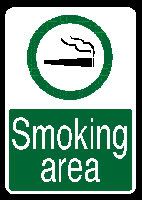Santa Cruz, CA: Adults who live in areas where marijuana is criminally prohibited are more likely to report a preference for stronger strains of pot as compared to adults who live in areas where the sale of the drug is legally regulated, according to survey data to be published in the forthcoming issue of the International Journal of Drug Policy.
An investigator at the University of California at Santa Cruz randomly surveyed the marijuana use patterns of more than 400 experienced cannabis consumers in San Francisco and Amsterdam. The survey reported that respondents in Amsterdam, where the sale of small quantities of cannabis is regulated in retail stores, were significantly more likely than those in San Francisco to prefer "mild" and "moderate" cannabis over "strong" or "very strong" varieties.
"[B]ecause the cannabis markets in San Francisco remain illicit, users are more apt to feel they can never be certain of potency and so are more likely to choose stronger strains," the study reported. By contrast, "In Amsterdam three decades of de facto decriminalization have fostered a stable and translucent retail cannabis market in which users are reliably able to buy cannabis of the potency they prefer."
Over two-thirds of respondents in both cities reported that they moderated their use of cannabis depending its potency – typically consuming lesser quantities of stronger pot.
Survey respondents in both Amsterdam and San Francisco said that the price of cannabis had little impact on their use, suggesting that "policies designed to reduce aggressive demand for cannabis … by increasing its price are unlikely to have a large impact."
Respondents in both cities also reported that they perceived their risk of being arrested for using marijuana to be "very unlikely." Respondents in both cities reported that they could obtain cannabis within "a few hours," though those who lived in San Francisco were far more likely to report that they obtained their marijuana from "friends."
Age of onset, age at first regular use, and age at the start of periods of maximum use were "nearly identical" in both cities. By contrast, marijuana users in Amsterdam were far less likely than users in San Francisco to have experimented with other illicit drugs, including cocaine, crack, methamphetamine, ecstasy, and opiates.
"The differences in response patterns between samples of experienced users in different legal-policy milieux suggest that various aspects of drug policy interact in complex ways with both user cultures and the broader cultures in which they are situated," the study concluded. "But the fact that we found more similarities than differences across the contrasting drug control regimes provides further support for the view that cannabis use is a deeply embedded cultural practice that is not easily reached by drug policy."





















No comments:
Post a Comment